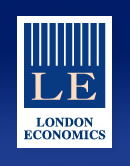Whilst consumers, particularly residential consumers, have gained little from privatisation and deregulation, a whole raft of advisers, consultants, merchant bankers and stockbrokers have been enriched, as have some foreign companies and their executives.
 A significant portion of World Bank loans for water and sewerage projects are allocated to consultants based in the US, the UK and other affluent nations. Food and Water Watch claim that these consultants "do not provide a useful, independent or objective assessment of the proposed project" and "do not add any substantial value".
A significant portion of World Bank loans for water and sewerage projects are allocated to consultants based in the US, the UK and other affluent nations. Food and Water Watch claim that these consultants "do not provide a useful, independent or objective assessment of the proposed project" and "do not add any substantial value".
For example global management consulting firm, McKinsey & Company, "worked with Germany's Treuhandanstalt, the largest privatization program in the world, to evaluate thousands of state-owned companies in the former German Democratic Republic."
Consultants promoted the belief that the private sector could build infrastructure more efficiently. Management consultants, in particular, benefited from the huge fees involved in advising government departments as well as those bidding on the PFIs. For example Price Waterhouse Coopers (PwC) was employed on 174 projects with a capital value of £31.4bn in the UK by 2005 and KPMG was employed on 98 deals with a capital value of £16bn.
Consultants and advisers were paid about $160 million in the process of energy privatisation in Victoria alone and the potential of lucrative consultancies ensured an active constituency for privatisation. The banks, including the Macquarie Bank, Merrill Lynch and Credit Suisse First Boston, were also major beneficiaries of privatisation, making millions from advice and consultancies.
Consultants and advisers received tens of millions of dollars for advice on the privatisation of electricity in South Australia as they had in Victoria. Investment Bank Morgan Stanley alone was expected to be paid some $20 million by 2000. The final estimate for consultants for the sale was over $110 million.
Peter Troughton, who headed the Victorian Reform Unit, and his private consultancy firm Troughton Swier and Associates, were also primary consultants on the privatisation of the gas and aluminium industries. Troughton was said to be a trusted associate of Premier Kennett and Treasurer Stockdale. His firm earned millions for its advice on privatisation, $6 million in the first 18 months of a contract to provide project management service that included “reform and restructuring of the energy sector”, privatisation and the introduction of competition. The contract was not put out to tender and so was not subject to competition itself.
 Tasman Institute were commissioned by various international agencies, including the World Bank, APEC, the ADB and AusAID, to do work on infrastructure reform in developing countries. In 2000 Porter joined forces with Nick Morris of London Economics (Australia) to form Tasman Economics. Nick Morris was formerly in charge of research at the Institute for Fiscal Studies (IFS), where he had been involved with the privatisation of British Telecoms, British Gas, and rail privatisation. In 1986 he co-founded London Economics, which claims to have “played a key role in UK privatisation”. For example, Morris advised the Electricity Area Boards and Scottish Hyro-electric during privatisation of electricity in the UK. He also helped develop independent power projects and helped with the design of the software for the power pool.
Tasman Institute were commissioned by various international agencies, including the World Bank, APEC, the ADB and AusAID, to do work on infrastructure reform in developing countries. In 2000 Porter joined forces with Nick Morris of London Economics (Australia) to form Tasman Economics. Nick Morris was formerly in charge of research at the Institute for Fiscal Studies (IFS), where he had been involved with the privatisation of British Telecoms, British Gas, and rail privatisation. In 1986 he co-founded London Economics, which claims to have “played a key role in UK privatisation”. For example, Morris advised the Electricity Area Boards and Scottish Hyro-electric during privatisation of electricity in the UK. He also helped develop independent power projects and helped with the design of the software for the power pool.
London Economics was one of the leading consultants on the deregulation of Australia’s government enterprises from 1989 to 1992. It worked with various state governments and had “a strong influence on the utility reform process in Australia”. It was a consultant for the restructuring of the State Electricity Commission of Victoria (SECV), Melbourne Water and the Victorian Gas and Fuel Corporation. It advised the Queensland government  on the sale of electricity generation and led Queensland’s electricity Industry Structure Task Force from 1996-98. It also advised the NSW government on privatisation of the electricity industry in 1997 and advised the Industry Commission on electricity market reform in NSW in 1998.
on the sale of electricity generation and led Queensland’s electricity Industry Structure Task Force from 1996-98. It also advised the NSW government on privatisation of the electricity industry in 1997 and advised the Industry Commission on electricity market reform in NSW in 1998.
London Economics has also been involved in electricity and water industry restructuring in a number of other countries including India (investigation for the World Bank), Malaysia, Thailand, Indonesia and New Zealand. Morris has advised companies in France, Germany, Italy and Spain on the impact of deregulation. Porter also advised Asian countries on privatisation. In 1997 he completed a report on the Southern Economic Focal Zone of the Socialist Republic of Vietnam, in which he recommended restructuring and privatisation of electricity, transport and water.
Tasman Economics claims expertise in a number of areas including corporatisation and privatisation because of their experience in developing and implementing “models of private sector participation in the provision of infrastructure throughout Australia and Asia, including water and sewerage, electricity and transport”. It has played a lead advisory role in “private sector participation in the Philippines, Indonesia and most recently Thailand.” In particular, Tasman’s claimed expertise included:
Its personnel, apart from Porter and Morris, include several people who once worked for the Industry Commission, including former Managing Director (Canberra) John Zeitsch who also held a senior position at the OECD. Its clients include the Asian Development Bank, the OECD and the World Bank; business groups such as the Australian Industry Group and the NZ Business Roundtable; private companies including AGL, BHP, Shell Australia, WMC; and electricity companies Citipower and Powercor. It has also worked for various Electricity Commissions and Corporations in NZ, Australia and Asia as well as governments and government departments in Australia and Asia, including Indonesia, Philippines, Thailand and Vietnam.
Jan McMahon, secretary of the Public Service Association, argues that the main reason governments employ consultants to restructure public services, rather than doing it themselves, is to ensure their work could be kept “commercial-in-confidence” to prevent it being made public through freedom of information requests and public inquiries. The SA Auditor General noted: “management arrangements for the disposal of ETSA Utilities and ETSA Power have significantly diluted the accountability obligations normally required of Advisers in a transaction of this nature”.
Consultants and advisers, particularly those from think tanks, have played a dual role; first promoting privatisation as a scheme that will benefit everyone, and then reaping a good share of the benefits themselves in fees for advising on how to do it.
For example, the London Underground Public-Private Partnership (PPP), initially recommended in a PriceWaterhouseCoopers (PwC) report to Treasury, reaped consultants £455 million in fees, including £21m for PwC. As a result of the PPP the government retained most of the risk involved in the investment whilst the private companies made large profits by increasing fares and neglecting maintenance.